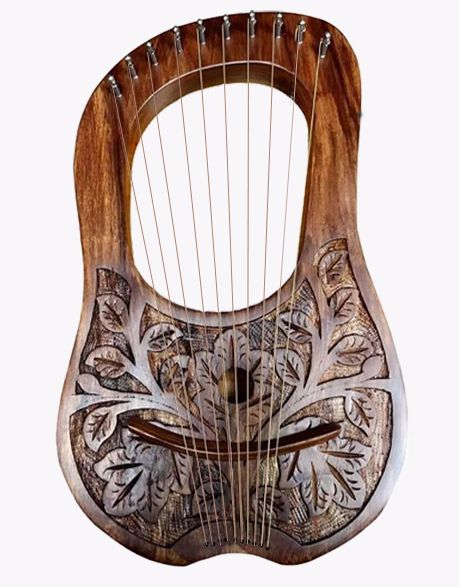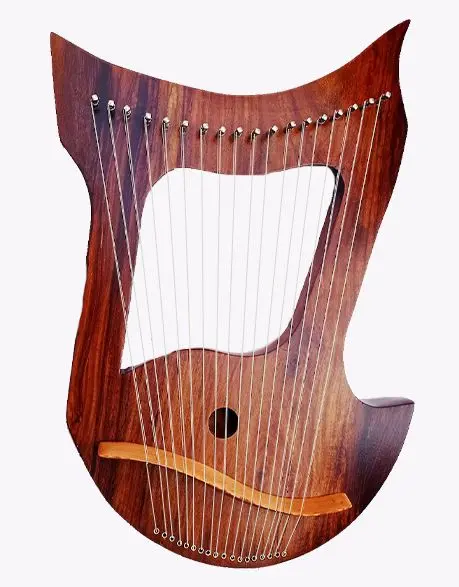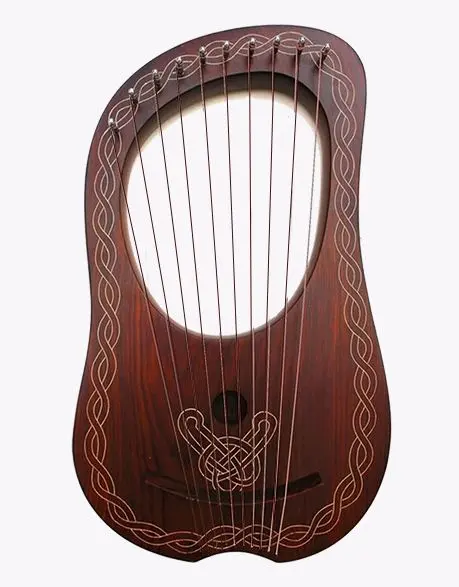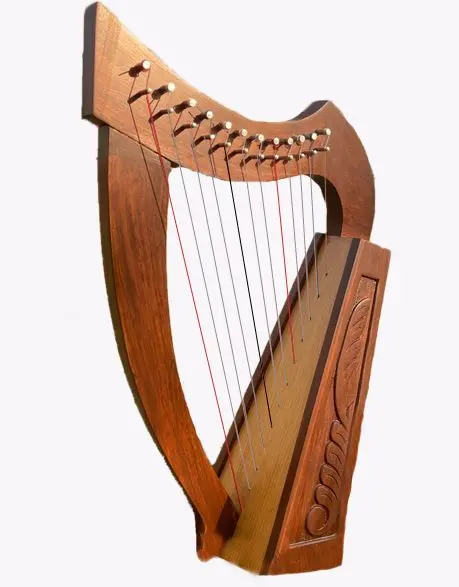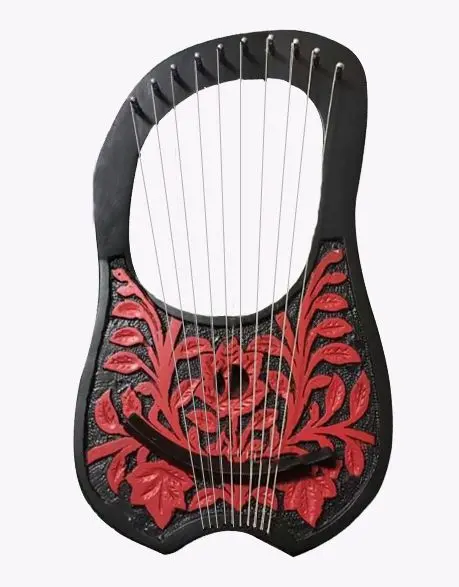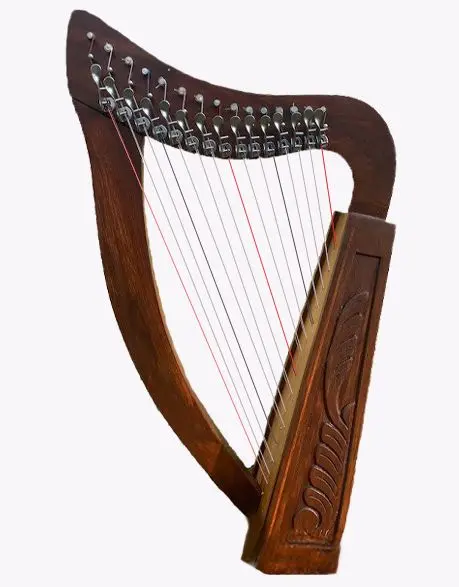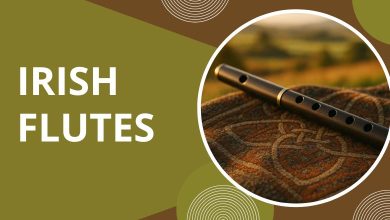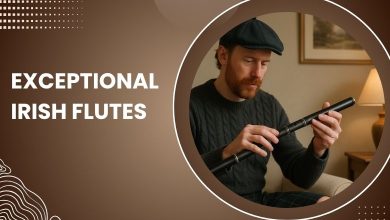Beginner’s Lyre Harps Guide: History, Types, etc.

The Scottish Highlands are known for many unique cultural elements that have made the region popular worldwide. Whether we talk about the diverse landscapes, Highland games, or their traditional attire, everything is unique. Likewise, their traditional Celtic music has helped spread Highland culture across the globe. Today, they have many woodwind instruments they use to play their cultural music. One such instrument is the lyre harp. This article serves as a beginner’s guide, covering its history, types, care tips, and more. Without any further delay, let’s begin with their history.
Table of Contents
ToggleHistory of the Lyre Harp
A lyre harp is a string-based instrument, invented almost 4,500 years ago. It was widely accepted in many ancient societies, particularly in Greece and Mesopotamia. With its basic frame and strings, the lyre was played by plucking and the process continues to this day.
It was used in ancient music for narrative, ceremonies, and amusement. Lyre harps, which represent harmony and beauty, were also frequently used in literature and art. Over time, the instrument evolved, with changes in design and materials. Today, they are still played for their rich, soothing sound, connecting us to a deep musical history.
Types of Lyre Harps: Diatonic vs Chromatic
Lyre harps come in various sizes and typically feature multiple metal strings. However, the number of strings can range from 7-32 depending on the size. The distinction between types lies in their string arrangements. Usually, there are two types of lyre harps discussed below:
Diatonic Lyres
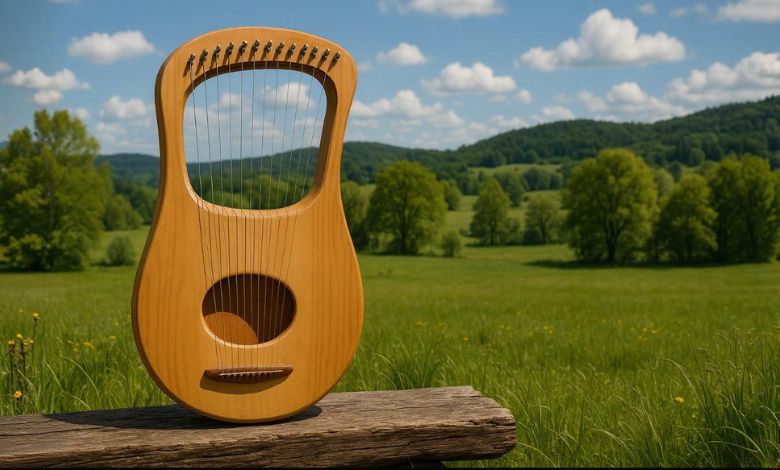
When talking about the traditional form of the lyre harp, the diatonic lyre is an ancient one which uses a diatonic scale, a fundamental element of Western music. Normally they are smaller in size and have 7-12 strings, while some manufacturers make diatonic lyres with 7-24 wires. This musical instrument usually features 7-note scales frequently used in various genres of music, including classical, jazz, and folk music.
Chromatic Lyres
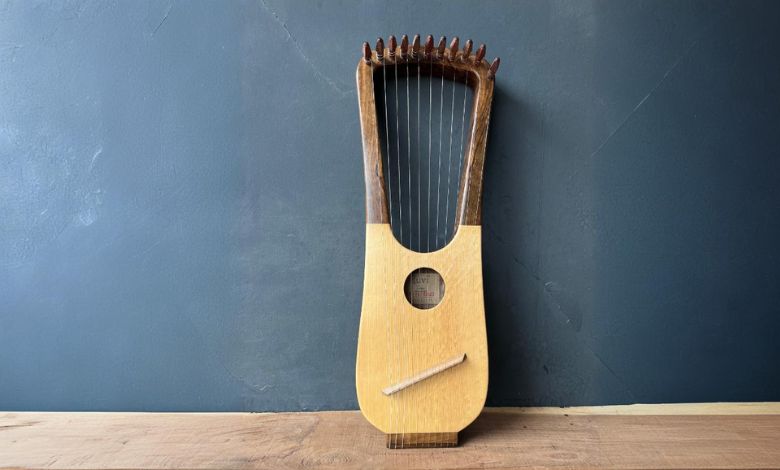
The next variation is the Chromatic lyre harp which is the modern version and offers more features than the diatonic lyre. It allows access to complete 12-note scales to the musicians allowing for sharps, flats, and more complex musical compositions This instrument is larger and heavier than the previous one. Similarly, the number of strings is significant, resulting in an increased price. Another feature that makes it a popular choice among musicians is being pre-tuned.
Factors to Consider When Buying a Lyre Harp
Buying a lyre harp can be challenging, especially for beginners. However, knowing what to look for can make the process easier. Therefore, we made a list of a few things to consider when buying a lyre harp. You will not need assistance from someone if you act upon these instructions.
Material of Construction
Start by examining the materials used in its construction.. The body is usually made of wood (rosewood preferably) which means it has a longer lifespan. Check string materials quality, usually made with steel or nylon. Make sure to go with premium quality. Don’t confuse string quality with material alone; steel strings tend to produce bright, vibrant tones. At the same time, nylon strings provide warmer and mellow melodies.
Size and Portability
The size of the instrument must be a priority while the decision depends on preferences. If portability is your requirement, go with a smaller harp. But keep in mind that small tools produce limited melodies. First check the environment where you need to play it, then decide its size and portability factor.
Number of Strings
The number of strings while buying lyre harps should be your priority. Check the skill level of the player first. If he is a beginner, go with fewer strings (7-16) because this number is a bit easier to play and manage. More strings, on the other hand, produce complex sounds and suit experts.
Sound Quality
Do not underestimate the sound quality of a lyre harp. Focus on its tonal characteristics, resonance, and overall clarity. A good-sounding lyre should produce clear, well-defined notes with a pleasing and warm tone. Analyze inconsistencies, such as strings that snap or don’t resonate properly since they indicate quality issues.
Caring for Your Lyre Harp
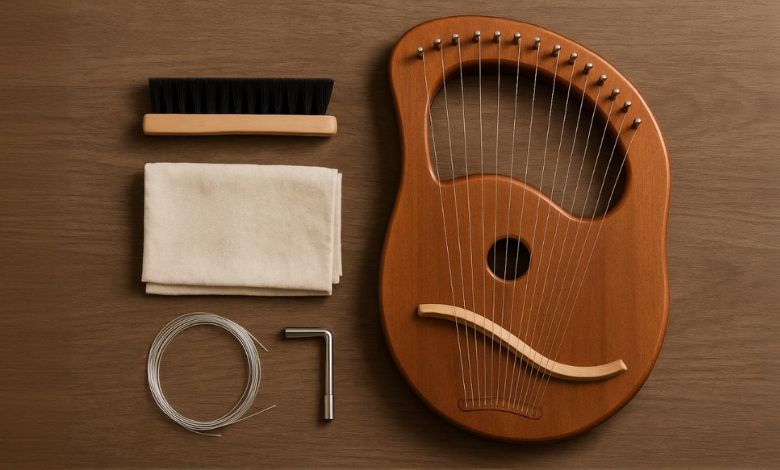
Buying a harp is not a problem, but caring might be bothersome to many. Thus, their proper care and maintenance is what secures your investment for an extended duration. Below are some common tips to keep the instrument healthy.
- Clean the instrument properly using a soft brush to remove the dust. Be cautious while cleaning strings and pins, so they may not get damaged.
- The following step is none other than basic maintenance. It involves regular cleaning, proper storage, and string cleaning after a specific duration. Avoid using stiff brushes; instead, use soft bristles or a gentle cloth.
- Consider replacing strings after a period of time. Regular usage can impact them too, so focus on rust, fray, or unclear sounds. Change them if any of these issues appear.
- Sometimes little problems, such as a loose tuning pin that slips a little, can be properly fixed. Pins may occasionally require reseating or mild tightening. Be careful and do not apply too much force while tightening, it may damage the wood and pin mechanism.
Ideal Lyre Harps to Buy
Frequently Asked Questions About Lyre Harps
Is the lyre difficult to play?
Lyre harps are generally considered easy to learn, making them ideal for beginners. Those who desire to make a career as a musician start with lyre harps. However, the number of strings must be considered in the beginning.
How many strings should a beginner lyre have?
Newbies should consider starting with 7-9 strings because these strings are less complex to manage. However, it’s still essential to learn basic tuning techniques.
Is harp easier than guitar?
Yes, experts often say that the harp is easier to learn than the guitar, especially for learners. However, proper practice is mandatory.
Start Musical Journey with Irish Kilt Shop
Whether you’re a hobbyist or a beginner, choosing a quality lyre harp should be your priority. To find such instruments, you must consider visiting Irish Kilt Shop, an online brand offering quality, affordability, and variety altogether. So, what stops you from placing an order? Explore our collection, choose, and add it to the cart. If a query bothers you, consult our team via the chat box or +44 01254 957307.

